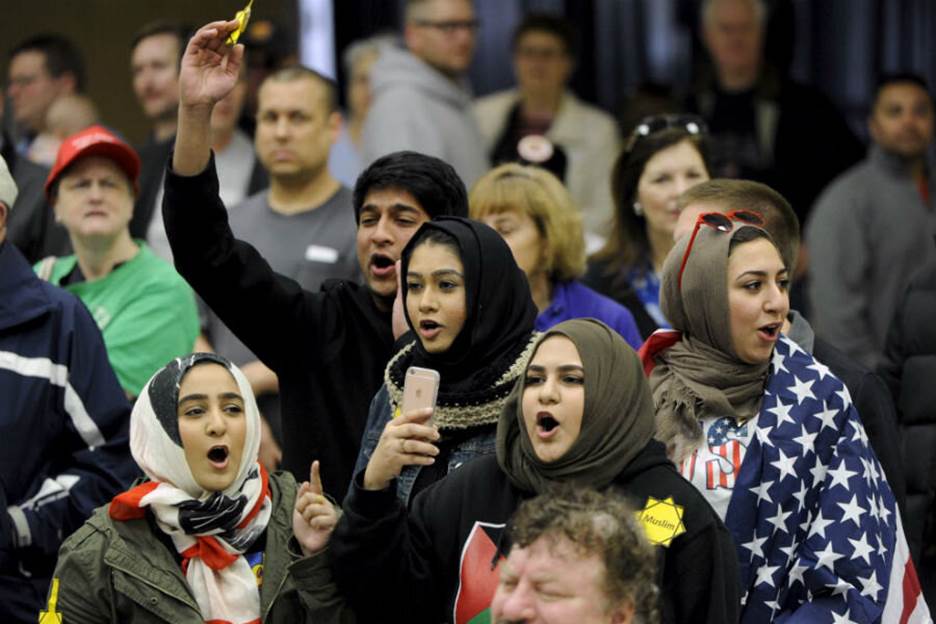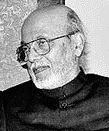

Christian Science Monitor
Bonding with America ...
Akhlaq e Amrikiye : A Manual for Survival
of Muslims in America - 4
By Professor Nazeer Ahmed
Concord, CA

In the last installment, we explored the meaning of citizenship in a modern state as a covenant between an individual and a state, entered into freely and willingly. The commandment of the Qur’an is to honor our covenants and contracts.
This definition is important in the modern world where people move from one country to another and often change their citizenship. An individual must honor the pledge of allegiance he enters into with the country whose citizenship he accepts and must abide by its constitution, its laws, rules and regulations. This is validated by the Seerah (the path, methodology) of Prophet Muhammed (pbuh) when he sent a group of Muslims from Mecca to Abyssinia (613 CE) to live under the protection of the Christian king, Negus.
In this installment, we will briefly explore the meaning of liberty, democracy, representation and choice in the context of a just and free society. Our objective is to capture the correspondence between American ethics and Islamic ethics. The scope of the discussion is directed and limited, namely, to enunciate the principles of Akhalaq e Amrikeye in the context of the broader American ethic as conceived by the founders of the American Republic.
The Declaration of Independence of the United States (1776) asserts: “We hold these truths to be self-evident, that all men are created equal, that they are endowed by their Creator with certain unalienable Rights, that among these are Life, Liberty and the pursuit of Happiness. --That to secure these rights, Governments are instituted among Men, deriving their just powers from the consent of the governed…….”.
The Preamble to the Constitution of the United States declares: “We the People of the United States, in order to form a more perfect Union, establish Justice, insure domestic tranquility, provide for the common defense, promote the general welfare, and secure the blessings of liberty to ourselves and our posterity, do ordain and establish this Constitution for the United States of America”. The American pledge of allegiance, which was composed in 1887 and has gone through several revisions the last of which was in the Eisenhower era, states in part: “… One Nation under God, indivisible, with Liberty and Justice for All”.
There has been a lively debate among constitutional scholars as to the religious affiliation and the religious disposition of the Founders. Some have claimed that the American ethic has its basis in Christianity. Others have held the opinion that they were deist (believing in God) and Unitarian, nominally Christian, but subscribing to universal ethics that transcend Christianity and are upheld by all higher cultures. I share the latter view. I base my position on the fact that three of the principal figures who drafted the constitution, Thomas Jefferson, Benjamin Franklin and John Adams were all declared Unitarians. Thomas Jefferson kept a Bible wherein he had removed all passages related to Christian dogma while keeping the passages about universal ethics. He also kept a copy of an early translation of the Qur’an. Benjamin Franklin was a scientist, and had spent two years in France as a diplomat. He had been influenced by the ideas of the Age of Enlightenment (1700- 1800). (Our readers may recall that Tippu Sultan (d 1799) of Mysore was a contemporary of Thomas Jefferson and Benjamin Franklin and had been similarly influenced by the ideals of the French Revolution; he had declared himself “citizen Tippu”, a remarkable declaration from a Muslim monarch at the time. It is an irony of history that India was enslaved at the same time that America achieved its independence).
The Declaration of Independence, the Preamble to the Constitution and the Pledge of Allegiance enunciate certain self-evident truths. Summarily, these self-evident truths are consistent with and reflect the injunctions of the Qur’an and the Seerah of the Prophet. I am deeply aware that the implementation of these ideals in American history was flawed, especially, as it applied to African Americans and Native Americans. However, I will focus and limit the scope of my discussion to the Muslim presence in America.
Trusteeship and Sovereignty
The Qur’an teaches us: “I offered the Trust to the heavens, mountains, and the earth, but they declined, being afraid thereof. Humankind accepted it. It was indeed unjust and ignorant”. (Qur’an:33:72)
What was that Trust? Why did humankind accept it? Philosophers, scholars, and sages alike have pondered over this question and have offered different explanations from their own perspectives. In essence, the question can be restated as follows: What makes us human? What distinguishes us humans from the heavens, the mountains, and the earth? What makes us different from the angels, or for that matter, the devil, and the beast?
We will succinctly state some well-known philosophical positions and our own explanation that the Trust is the Spirit that is infused into us by Divine command. No other explanation is both satisfactory and complete.
The Materialist View
According to the materialist theory man has been molded and created by material nature just as have been the animals, plants and living organisms. The theory originated with the Greeks. Democratus (460 - 362 BC) was the foremost exponent of this theory. It received a great deal of attention by European thinkers in the seventeenth and eighteenth centuries. Hobbes (1588 - 1679 CE), for instance, formulated a mechanistic theory of psychology. According to him, all that the mind knows can be explained in terms of material motion. In the nineteenth century, Karl Marx advanced the theory of dialectic materialism in which the social and political condition of man is determined by material conditions.
Does it make sense to say that man is only his material self? The human body is composed of 80 percent water plus traces of minerals like phosphorus, iron, etc. If all of these minerals were dried out and sold in the open market, they would be worth less than five dollars. Indeed, a dead body is economically worthless and is dependent on the goodwill of those who are alive to dispose of it. But a man who is alive is priceless because of his attributes. He acts and leaves his trail through history on the sands of time. His indomitable will conquers, shapes, molds, and fashions matter. His creativity imparts beauty to inanimate materials. He processes and and makes a transistor out of it. He excavates the earth, extracts metals, and uses them to construct rockets for interplanetary space travel. Man is not part of matter; he rules matter. To equate man with matter is to deny him his creativity and his freedom to choose. Matter cannot create. It cannot and does not choose. Certainly, matter has no will. Certainly, dead matter was not the Trust that was offered to the heavens, the mountains and the earth. (Continued next week)
(The author is Director, World Organization for Resource Development and Education, Washington, DC; Director, American Institute of Islamic History and Culture, CA; Member, State Knowledge Commission, Bangalore; and Chairman, Delixus Group)

